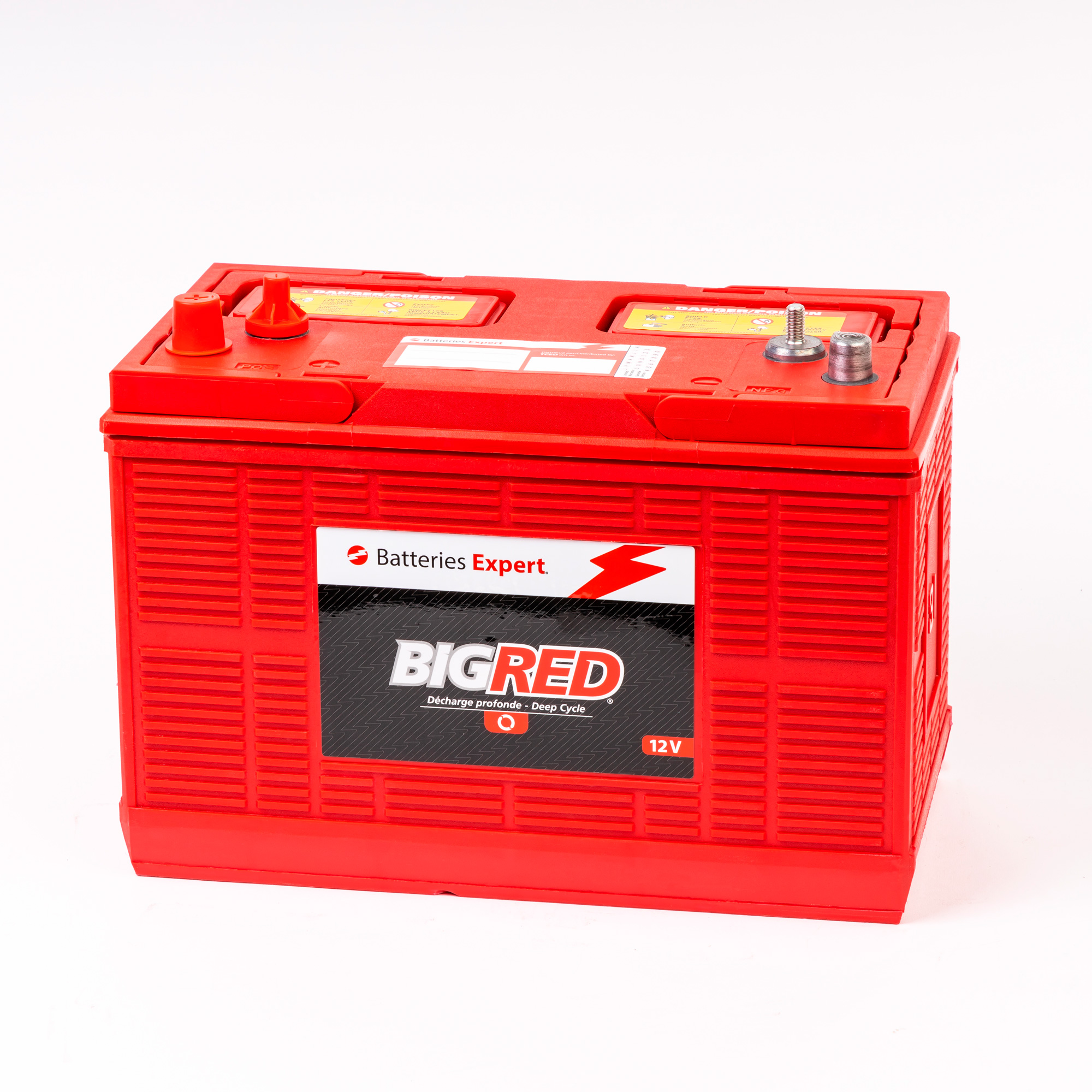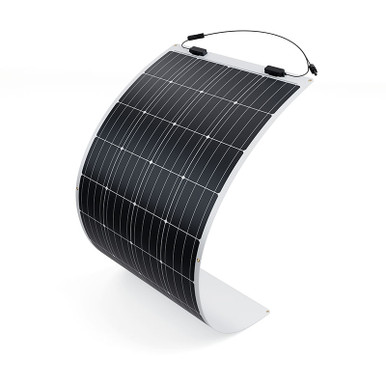Hi all.
I've recently bought 4x new Lead Acid batteries for my boat. They are 12v 130AH Group 31 each.
batteries:

 www.batteriesexpert.com
www.batteriesexpert.com
The plan is to keep them in tip top shape for as long as I can. I have two fridges on my boat pulling about 96 Amps a day. So I have 2 to 2.5 days of autonomy before I need to start the engines or the generator. For this reason, I've also purchased 2x Renogy flexible 175W panels and a Victron 100/50 controller.
Panels:

 ca.renogy.com
ca.renogy.com
Victron 100/50:
 www.victronenergy.com
www.victronenergy.com
My generator connects to a 12V 50amp Charles C-Charger. Shore Power also engages the Charles C-Charger.
My complete system is all factory inter-connected. I have 2x older Group 31 lead acid starter batteries, my 4x new lead acid house batteries and 1x new group 27 bow thruster battery.
I have a few questions.
1. I will connect my 4 new batteries in parallel. The old batteries were connected in parallel before, but not the right way. The first battery was connected to the load/charger and the other three were connected behind. My 4x house batteries are not all grouped together, there are 2 on the left side of the engine bay and 2 on the right side of the engine bay. I have two options to connect them in parallel. The first option is via bus bar, but this means a lot of battery wire ($$) as they must all be the same length. The second option is "perfectly balanced charging" as per this article (less cable, less $$):
Are both options the same when it comes to charging?
2. I'm worried about my boat when it is ashore and left unattended for a week or so. When I'm at the dock, the boat is connected to 50 amp shore power and my Charles charger is charging all my batteries. My solar system will also be charging my batteries at that time when installed. I cannot modify the charging setting of my Charles charger. It will bulk charge until 14.5 volts, absorb for 4 hours and then float at 13.6 volts. The new battery manufacturer recommends bulk at 14.8 volts and float at 13.5 volts. If I program the Victron 100/50 to bulk at 14.8 volts, my Charles charger will go into absorption and float before my Victron, and I'm not sure that is so great. So the question is should I configure my Victron exactly like my Charles charger when it comes to bulk, absorption and float in order to have shore and solar power act in unison? Or maybe should I just turn off the solar charging in the Victron when the boat is at dock for a week on shore power?
3. I've looked all over the internet, even between the internet couch cushions to find the answer to this one. Is there a recommended or generic lead acid bulk charge voltage, absorption voltage and time, and float voltage? Or is it battery dependant? Seems every lead acid battery I look at has a different bulk voltage, and a different float voltage. I'm just not sure anymore.
4. What is a good temperature compensation factor in mV/*C for a lead acid battery. I want to program the Victron, and I don't know that value, and my battery manufacturer cannot provide one.
5. For my installation, I will connect the Victron 100/50 battery (+) to the positive side of my bank via a 55 amp fuse. If the Victron sends too much, the fuse will blow and protect my battery bank. But what happens to the energy sent by the solar panels to the Victron? The Victron will receive voltage and current from the solar panels. Will this burn out my controller? Should I put a breaker or a fuse between the panels and the controller? Even if I do that, if the solar panels are disconnected from the controller because of an open breaker, they still create energy. Where does that energy go? Do the panels heat up to the point of failure?
Thanks for the insight. This helps a lot.
JF
I've recently bought 4x new Lead Acid batteries for my boat. They are 12v 130AH Group 31 each.
batteries:

31-BIGRED Deep Cycle Battery Gr 31M 12V 130Ah 200RC Batteries Expert
31-BIGRED Deep Cycle Battery Gr 31M 12V 130Ah 200RC
The plan is to keep them in tip top shape for as long as I can. I have two fridges on my boat pulling about 96 Amps a day. So I have 2 to 2.5 days of autonomy before I need to start the engines or the generator. For this reason, I've also purchased 2x Renogy flexible 175W panels and a Victron 100/50 controller.
Panels:

175 Watt 12 Volt Flexible Monocrystalline Solar Panel
Renogy 175W Lightweight Solar Panel, a culmination of cutting-edge technology and high-efficiency cells to achieve up to an incredible 248-degree arc of flexibility. At 6.2 pounds, this solar panel weighs 70% less than its standard counterpart an
 ca.renogy.com
ca.renogy.com
Victron 100/50:
SmartSolar MPPT 100/30 & 100/50 - Victron Energy
Maximize the energy-harvest, driving it intelligently to achieve full charge in the shortest possible time using the SmartSolar MPPT. Learn more now.
My generator connects to a 12V 50amp Charles C-Charger. Shore Power also engages the Charles C-Charger.
My complete system is all factory inter-connected. I have 2x older Group 31 lead acid starter batteries, my 4x new lead acid house batteries and 1x new group 27 bow thruster battery.
I have a few questions.
1. I will connect my 4 new batteries in parallel. The old batteries were connected in parallel before, but not the right way. The first battery was connected to the load/charger and the other three were connected behind. My 4x house batteries are not all grouped together, there are 2 on the left side of the engine bay and 2 on the right side of the engine bay. I have two options to connect them in parallel. The first option is via bus bar, but this means a lot of battery wire ($$) as they must all be the same length. The second option is "perfectly balanced charging" as per this article (less cable, less $$):
Are both options the same when it comes to charging?
2. I'm worried about my boat when it is ashore and left unattended for a week or so. When I'm at the dock, the boat is connected to 50 amp shore power and my Charles charger is charging all my batteries. My solar system will also be charging my batteries at that time when installed. I cannot modify the charging setting of my Charles charger. It will bulk charge until 14.5 volts, absorb for 4 hours and then float at 13.6 volts. The new battery manufacturer recommends bulk at 14.8 volts and float at 13.5 volts. If I program the Victron 100/50 to bulk at 14.8 volts, my Charles charger will go into absorption and float before my Victron, and I'm not sure that is so great. So the question is should I configure my Victron exactly like my Charles charger when it comes to bulk, absorption and float in order to have shore and solar power act in unison? Or maybe should I just turn off the solar charging in the Victron when the boat is at dock for a week on shore power?
3. I've looked all over the internet, even between the internet couch cushions to find the answer to this one. Is there a recommended or generic lead acid bulk charge voltage, absorption voltage and time, and float voltage? Or is it battery dependant? Seems every lead acid battery I look at has a different bulk voltage, and a different float voltage. I'm just not sure anymore.
4. What is a good temperature compensation factor in mV/*C for a lead acid battery. I want to program the Victron, and I don't know that value, and my battery manufacturer cannot provide one.
5. For my installation, I will connect the Victron 100/50 battery (+) to the positive side of my bank via a 55 amp fuse. If the Victron sends too much, the fuse will blow and protect my battery bank. But what happens to the energy sent by the solar panels to the Victron? The Victron will receive voltage and current from the solar panels. Will this burn out my controller? Should I put a breaker or a fuse between the panels and the controller? Even if I do that, if the solar panels are disconnected from the controller because of an open breaker, they still create energy. Where does that energy go? Do the panels heat up to the point of failure?
Thanks for the insight. This helps a lot.
JF



